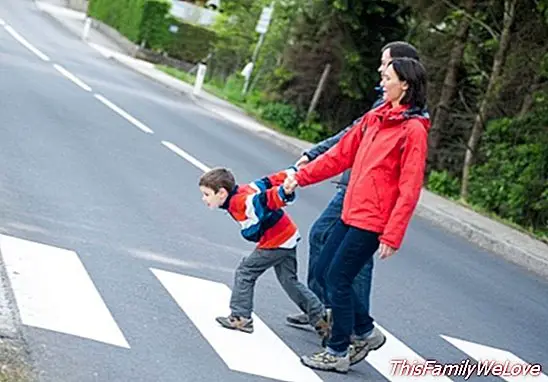Why children should not cross the street alone, a scientific explanation
The safety of the smallest of the house is one of the things that most goes around the head of the parents. Secure your integrity both inside and outside the home is something essential and one of the clearest examples is when the child is ready to cross the street alone. When is the child prepared to perform this activity? Should he be given freedom?
The answer is no, at least until the 14 years. At least that's what a study of the University of Iowa where it warns of the possible consequences for children to cross the street alone and the dangers they face if they do it alone. At these ages the youngest of the house have not yet developed the necessary skills to perform this act safely.
Prevention of danger
This research collected data from a group of children from 6 to 14 years and analyzed the process they performed before crossing the street. To do this, they placed cameras on their heads to follow up during a simulation of this activity. The intention was to check which calculations were made in order to know the distance to which the vehicles were and the time they had to reach the other side.
The results showed that by age 6, children had a 8% risk of suffering accidents, a percentage that although it may seem small, warns of the mortal danger that this activity can have for them. As they grew older, the children developed more skills, for example, to detect places where the time span between one vehicle and another was greater.

Towards the 12 years the children were already able to identify areas with less traffic and at 14 they had already achieved the necessary skills to determine when to cross the street without any problem like an adult. "Some people think that younger children can act like adults when they cross the street," explains Jodie Plumert, a professor in the Department of Psychological and Brain Sciences at the University of Iowa.
Although in areas where traffic is not very intense can give the feeling that the child is able to cross the street without help, in those with more influx of cars the danger increases as the child has not developed the ability to perform these calculations effectively.
Precautions for parents
This study shows how the act of crossing the street should involve the adoption of precautionary measures by parents. The first one must be the accompany to their children, especially when they are younger, when changing curbs. Adults should be the ones who mark the moment to move towards the other side and always watch the little ones.
You should also teach yourself the importance of crossing through the steps of pedestrians and always respecting when the traffic lights prefer them. In the event that the street crossing should do so during a school trip, parents should make it clear to their children that they must always respect the teacher or the authority that is guiding them, as well as never get distracted from their instructions.
At the same time it is important to teach them to play in limited areas for these leisure activities. In the case that for example your ball has left towards the road in the opposite direction, it is necessary to warn them that they should not go in their search. It is always best to ask a nearby adult for help recover it.
Damián Montero




